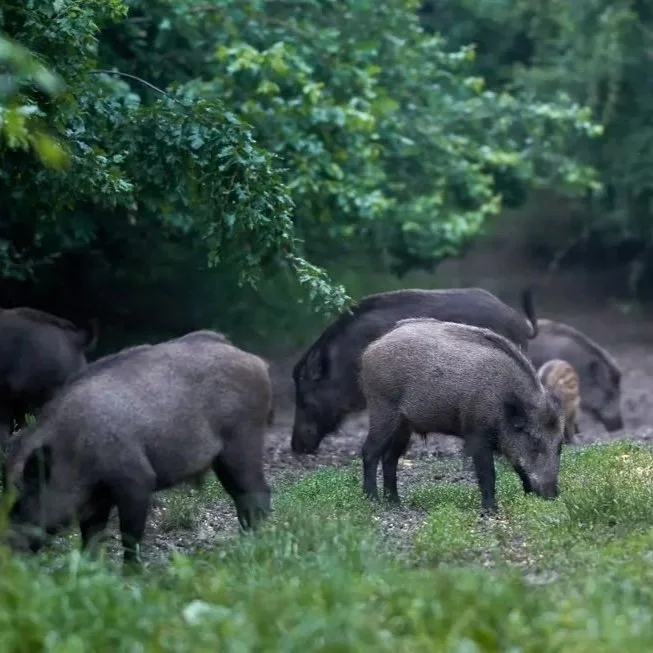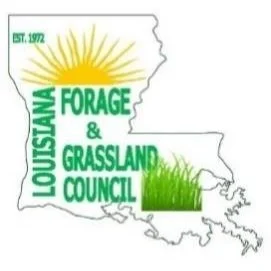Mark Shirley, a Louisiana Sea Grant and LSU AgCenter marine extension agent, retired in March after 41 years of service. He is known for many things during his career, but most notably, he developed Marsh Maneuvers — established in 1989 as an immersive education program for 4-H students to experience Louisiana's coast. The program motivates students toward studying coastal ecology and biological sciences.
Read MoreTo say that Louisiana has a "slight problem" with wild hogs would be like saying that Willie Nelson has a slight passion for marijuana.
In a report a few years back from the LSU Ag Center, it was estimated that feral hogs are doing $91.1 million in damage to Louisiana every year.
Read MoreU.S. farmers are expected to produce 1.38 billion bushels of winter wheat this year, according to the Crop Production report released today by USDA’s National Agricultural Statistics Service (NASS). In NASS’s first winter wheat production forecast for 2025, production is expected to increase 2% from 2024. As of May 1, the U.S. yield is expected to average 53.7 bushels per acre, up 2.0 bushels from last year’s average of 51.7 bushels per acre.
Read MoreThe U.S. Department of Agriculture (USDA) announced several Conservation Reserve Program (CRP) enrollment opportunities for agricultural producers and landowners. USDA’s Farm Service Agency (FSA) is accepting offers for both the General and Continuous CRP beginning today through June 6, 2025.
CRP, USDA’s flagship conservation program, celebrates its 40th anniversary this year. For four decades, CRP has provided financial and technical support to agricultural producers and landowners who place unproductive or marginal cropland under contract for 10-15 years and who agree to voluntarily convert the land to beneficial vegetative cover to improve water quality, prevent soil erosion and support wildlife habitat.
Read MoreA produce prescription program is putting fresh fruits and vegetables within reach for families in rural Louisiana.
The Healthy Families Produce Prescription (HFPRx) program — developed through a partnership of the LSU AgCenter’s High Obesity Program (HOP), Share Our Strength’s No Kid Hungry campaign and About Fresh — is now available in Assumption, Terrebonne, Winn, Morehouse and Claiborne parishes.
Read More“Why risk a life over a few crawfish?”
Recent rainfall has overflowed some crawfish ponds, sending the mudbugs into ditches and onto roads. It’s also brought some people to go out hunting for them.
Read MoreThe National Cattlemen’s Beef Association (NCBA) announced support for the U.S. Department of Agriculture’s (USDA) decision to close the U.S. southern border to shipments of cattle, bison, and horses, due to the continued spread of New World screwworm beyond the phytosanitary border put in place to stop its advance. Today’s announcement is the latest move to halt the spread of this invasive pest that puts the entire U.S. livestock industry at risk.
Read MoreSummer break is just around the corner. If you’re involved in 4-H or FFA or Community Club and need help financing your ag income producing project, reach out to your local FSA office to apply. Youth loans are for qualified applicants ages of 10-21. The maximum loan amount is $10,000 with a term of up to seven years.
Read MoreDespite some limited reforms, the Louisiana insurance market is still extremely challenging for consumers, local businesses, and insurers. Legal system abuse continues to worsen the situation by driving up the cost of insurance and imposing a “tort tax” on all Louisianans.
Read MoreSpring is in full swing as producers work to get any remaining cool season forages off pastures to allow for warm season forages to make their way through. Remember that forages, such as our winter annuals, can easily shade out summer perennials like bermudagrass. Your local extension agent can help you develop a plan to ensure maximum production of warm season forages on your operation.
Read MoreWarm-season perennial grasses such as bahiagrass, bermudagrass, and dallisgrass make up most of the acres of improved pasture in Louisiana. They also produce most of the grass hay harvested in the state. These grasses, if properly managed, are capable of remaining productive for many years after establishment, but initial establishment costs can be high.
Read MoreVariety selection is an important decision that producers must make when establishing forages in pastures. Many varieties of forage crops are marketed in Louisiana and scientists with the Louisiana State University Agricultural Center periodically conduct variety trials with warm-season forages. This information is used to make suggestions each year concerning warm-season forages for producers to consider utilizing.
Read MoreU.S. Senators Bill Cassidy, M.D. (R-LA) and John Kennedy (R-LA) introduced the CRAWDAD Act to support Louisiana crawfish producers through severe weather challenges by making them eligible for Emergency Livestock Assistance Program (ELAP) funding on a permanent basis, ensuring that they have access to the emergency support they need without bureaucratic delays. The bill would also classify a drought as a weather event that the U.S. Secretary of Agriculture could declare as an emergency.
Read MoreU.S. Secretary of Agriculture Brooke L. Rollins announced the suspension of live cattle, horse, and bison imports through U.S. ports of entry along the southern border due to the continued and rapid northward spread of New World Screwworm (NWS) in Mexico, effective immediately. NWS has been recently detected in remote farms with minimal cattle movement as far north as Oaxaca and Veracruz, about 700 miles away from the U.S. border.
Read MoreThe fight between the rural parishes and the industries supporting carbon capture and sequestration is not over.
On Monday, Allen Parish approved an ordinance establishing regulations for carbon storage wells.
Read More














